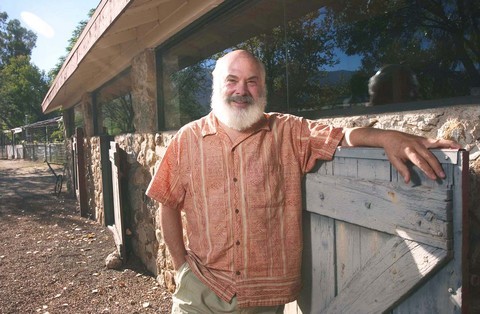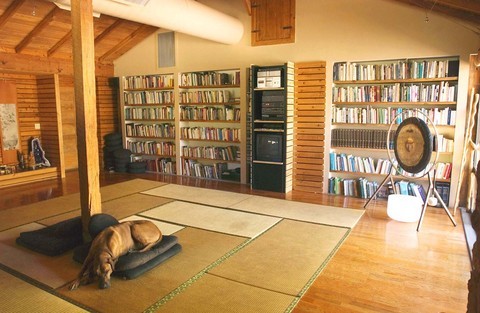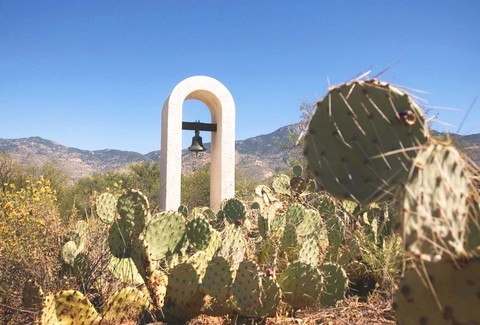Dr. Andrew Weil leaned into the podium and lashed into one of America's hottest values."Never before in history has human society been so sunk in such a wrong and unhealthy concept of aging as ours is," he said during a recent talk in Denver. "We're a totally youth-obsessed culture where aging is viewed as a catastrophe."
Weil is a 63-year-old who swims daily, adheres to a healthy diet, and works out twice a week with a personal trainer. Still, his belly hangs over his trousers.
This is fine with him. It's just part of how he has aged, and he accepts it. He's into positive aging -- sort of like wine, cheese and violins, which improve with the years. His beard may be white, but his skin has a glow that radiates wellness, particularly as he hammers away at his nemesis.

PHOTO: NY TIMES NEWS SERVICE
"I'm very bothered by the rise of anti-aging medicine and anti-aging philosophy that dominates this culture," he said.
"They say you can stop the clock, turn back time and grow younger. But that's impossible. At best, those things are worthless and a waste of money. At worst, they're medically dangerous."
More than 200 people packed the bookstore where he spoke, a standing-room-only crowd of all ages.

Almost everyone clutched a copy of his new book, Healthy Aging, which recently landed Weil again on the cover of Time magazine.
In the late 1990s, when he gained fame with the publication of his best sellers Spontaneous Healing and Eight Weeks to Optimum Health, The New York Times Magazine proclaimed that Weil had "arguably become America's best-known doctor."
Critics in the conventional medical community complained that he recommended therapies untested by the Food and Drug Administration.

But millions of Americans -- fed up with the country's health-care system -- propelled him into stratospheric success.
Named one of Time magazine's "100 Most Influential People" in the world, he frequently shows up on Larry King Live and Oprah, and recently teamed with Origins to create a line of holistic beauty products.
Healthy Aging, now a No. 1 New York Times best seller, is somewhat countercultural. He argues that aging gracefully requires not denial but acceptance of the inevitable, while doing everything possible to delay the onset of age-related disease. To live long and well, in other words.
His prescription includes diet, exercise, stress management, rest and mental challenges like learning a new language or changing your computer operating system every few years.
When Weil thinks of aging gracefully, he thinks of people like Jimmy Carter.
"He's great," said Weil. "He's not trying to look young, he's playing the role of an elder very well, with wisdom."
Unfortunately, he has had to cross a certain movie star off his list.
"I was really sorry that Robert Redford got a face-lift," he said. "I had a quote from him in the book saying that he wouldn't get a face-lift, but then I had to take it out."
Going around the country, Weil inspires audiences with tales of Japan, which has the highest longevity rates in the world.
"The old people there look different," he said. "They haven't used Botox or gotten face lifts. They look beautiful. They're happy, and they're proud of being old. This comes from living in a culture where age is celebrated."
After his talk, Weil was peppered with questions about everything from menopause to HGH, or human growth hormone, which he called "the big gun" of the anti-aging industry. (It's a waste of money, he says.)
Many in the audience were baby boomers, a group that gives Weil huge hope.
"The baby boomers will be turning 60 next year," he said, with a twinkle in his eye.
"They're a very large and influential segment of the population and I don't think they'll settle for the models of aging that have been out there."

June 9 to June 15 A photo of two men riding trendy high-wheel Penny-Farthing bicycles past a Qing Dynasty gate aptly captures the essence of Taipei in 1897 — a newly colonized city on the cusp of great change. The Japanese began making significant modifications to the cityscape in 1899, tearing down Qing-era structures, widening boulevards and installing Western-style infrastructure and buildings. The photographer, Minosuke Imamura, only spent a year in Taiwan as a cartographer for the governor-general’s office, but he left behind a treasure trove of 130 images showing life at the onset of Japanese rule, spanning July 1897 to

One of the most important gripes that Taiwanese have about the Democratic Progressive Party (DPP) is that it has failed to deliver concretely on higher wages, housing prices and other bread-and-butter issues. The parallel complaint is that the DPP cares only about glamor issues, such as removing markers of Chinese Nationalist Party (KMT) colonialism by renaming them, or what the KMT codes as “de-Sinification.” Once again, as a critical election looms, the DPP is presenting evidence for that charge. The KMT was quick to jump on the recent proposal of the Ministry of the Interior (MOI) to rename roads that symbolize

On the evening of June 1, Control Yuan Secretary-General Lee Chun-yi (李俊俋) apologized and resigned in disgrace. His crime was instructing his driver to use a Control Yuan vehicle to transport his dog to a pet grooming salon. The Control Yuan is the government branch that investigates, audits and impeaches government officials for, among other things, misuse of government funds, so his misuse of a government vehicle was highly inappropriate. If this story were told to anyone living in the golden era of swaggering gangsters, flashy nouveau riche businessmen, and corrupt “black gold” politics of the 1980s and 1990s, they would have laughed.

It was just before 6am on a sunny November morning and I could hardly contain my excitement as I arrived at the wharf where I would catch the boat to one of Penghu’s most difficult-to-access islands, a trip that had been on my list for nearly a decade. Little did I know, my dream would soon be crushed. Unsure about which boat was heading to Huayu (花嶼), I found someone who appeared to be a local and asked if this was the right place to wait. “Oh, the boat to Huayu’s been canceled today,” she told me. I couldn’t believe my ears. Surely,